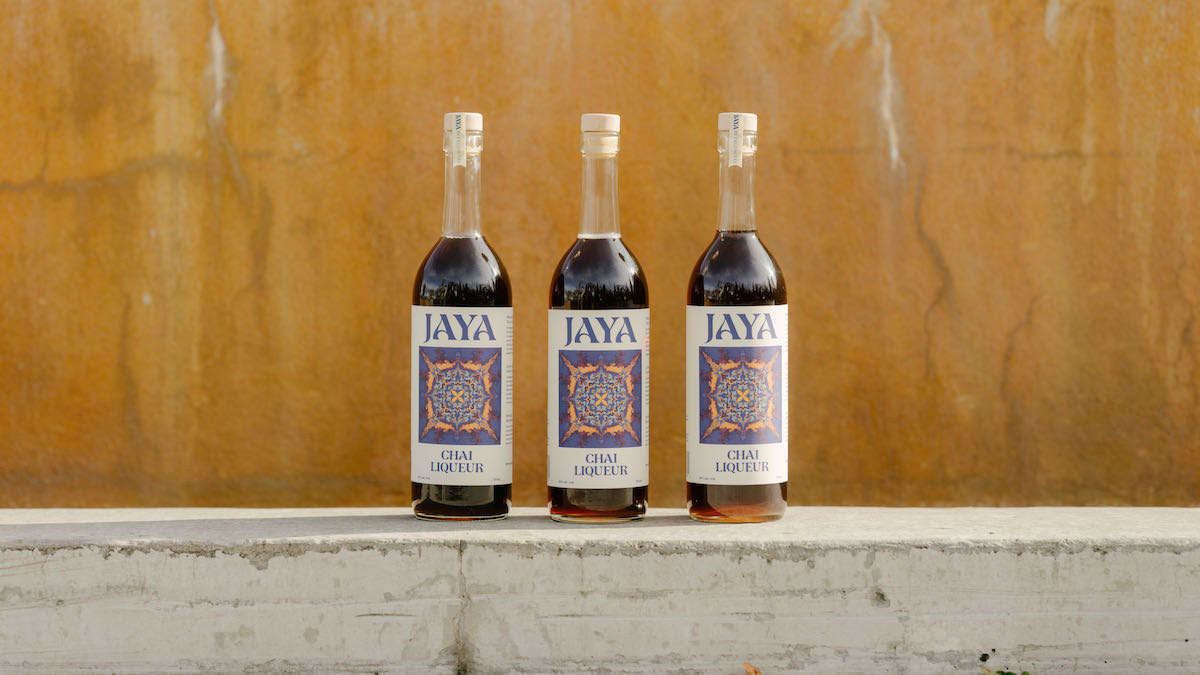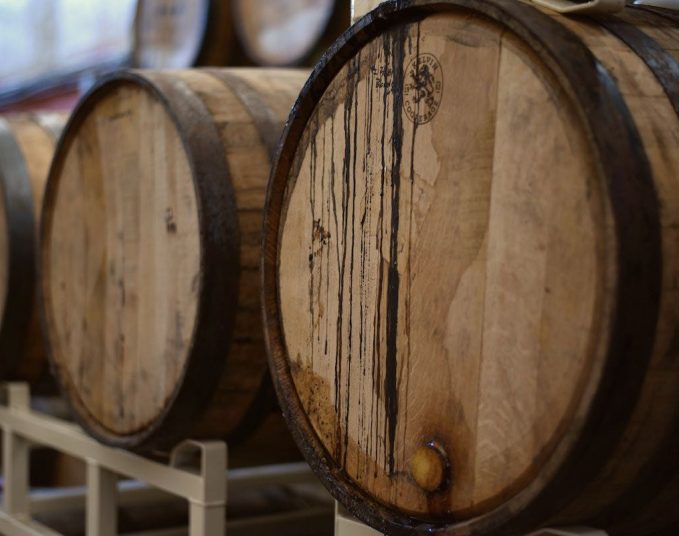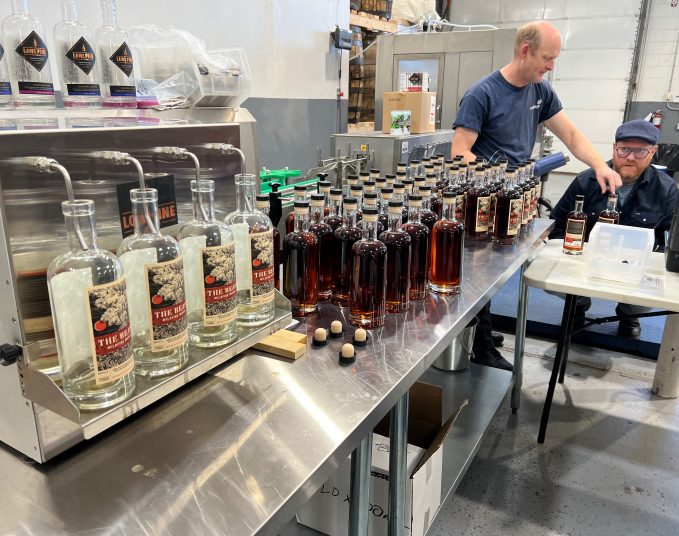It’s been a heady year for Field Notes, the distiller that produces Don’t Call Me Sweet Pea amaro and the Jaya Chai Liqueur. Combined, these two spirits won three medals at the 2024 San Francisco International Spirits Competition.
But while co-founder Faaiza Ramji is bullish about expanding the company’s reach to the United States, she’s abandoned plans to try and ship bottles next door to British Columbia.
“It’s impossible,” she says.
There’s just so many barriers that make it hard for an Alberta distiller to bridge the border. You and I can cross the B.C. border and not even notice; for a truck carrying Alberta bottles, there may as well be an iron curtain running north-south through the Rockies. In order to store bottles in B.C., an Alberta company has to pre-sell them.
“That doesn’t work,” says Ramji. “Because, when you’re a consumer good, people want to buy your product when they want to buy your product.”
So, while the provincial government has stated that it hopes a new wine deal with B.C. will lead to even more liquor-trade deals in the future, you can forgive Ramji for not holding her breath.
“I always try to be hopeful, but I am not overly optimistic,” she says. “It feels like there is not enough of an understanding of what needs to happen for makers to actually create better trade routes into our different provinces.”
In mid-July, the governments of Alberta and British Columbia ended their spat over wine, with a new one-year deal that allows B.C. wineries better access to markets in this province. There’s also a tax deal that comes with it.
Dale Nally, the UCP’s Minister of Service Alberta and Red Tape Reduction, said he hoped the deal would be a “springboard” to more talks about making it easier for liquor to flow between the provinces.
“We believe in free and open trade, and we are always open to finding opportunities to improve trade with our provincial partners,” wrote Brandon Aboultaif, Nally’s press secretary, in an email to Urban Affairs.
We’re happy that we have been able to enter into an agreement with our counterparts in British Columbian direct-to-consumer wine sales and we’re optimistic that it will be the starting point for improving trade of all liquor products, both with B.C. and potentially other provinces.”
Right now, the agreements between the provinces feel pretty one-sided. Of the 10 provinces and three territories, Alberta has the most open liquor market. It’s already easier for producers in other provinces to ship their products here than it is for Alberta distilleries and breweries to send their bottles to other places in Canada. So, there is little reason for the other provinces to change when it comes to dealing with Alberta.
“It feels like everyone is doing things for their own governments, and not for the sake of the Canadian producer,” says Ramji. ”There’s not much incentive for them to do things so differently, in my opinion. And, because of that, Alberta continues to get penalized for being the most open. I don’t want us to be less open, I just feel like the other provinces need to start leveling the playing field.”
Her cynicism is shared by Dan St. Pierre, the executive director of the Alberta Craft Distillers Association,
“In a nutshell, the craft distilling industry in Alberta is getting hammered on a variety of fronts right now, not least of which is because there is zero support to secure market access in other provinces,” he says. “The wine issue was sold to the Alberta Craft Distillers Association as a lever to create better market access for Alberta liquor producers in B.C.
“The deal announced by Premiers [Danielle] Smith and [David] Eby in Halifax, notwithstanding all the back slapping, does next to nothing for Alberta’s spirits producers. It is meaningful to B.C. wine producers who can resume direct-to-consumer sales, and to the Government of Alberta because they will collect a few extra bucks in tax revenue. But there are no commitments on allowing Alberta products more market access.
“Alberta is the most open liquor market in Canada. In some ways, that’s good for consumers. Not always though. It is, however, debilitating for local producers. While B.C. and Ontario producers dump thousands of products into Alberta through AGLC, we can’t get Alberta products on shelves in either province. Something is seriously wrong with that picture, don’t you think?”
Savvy AF. Blunt AF. Edmonton AF.




